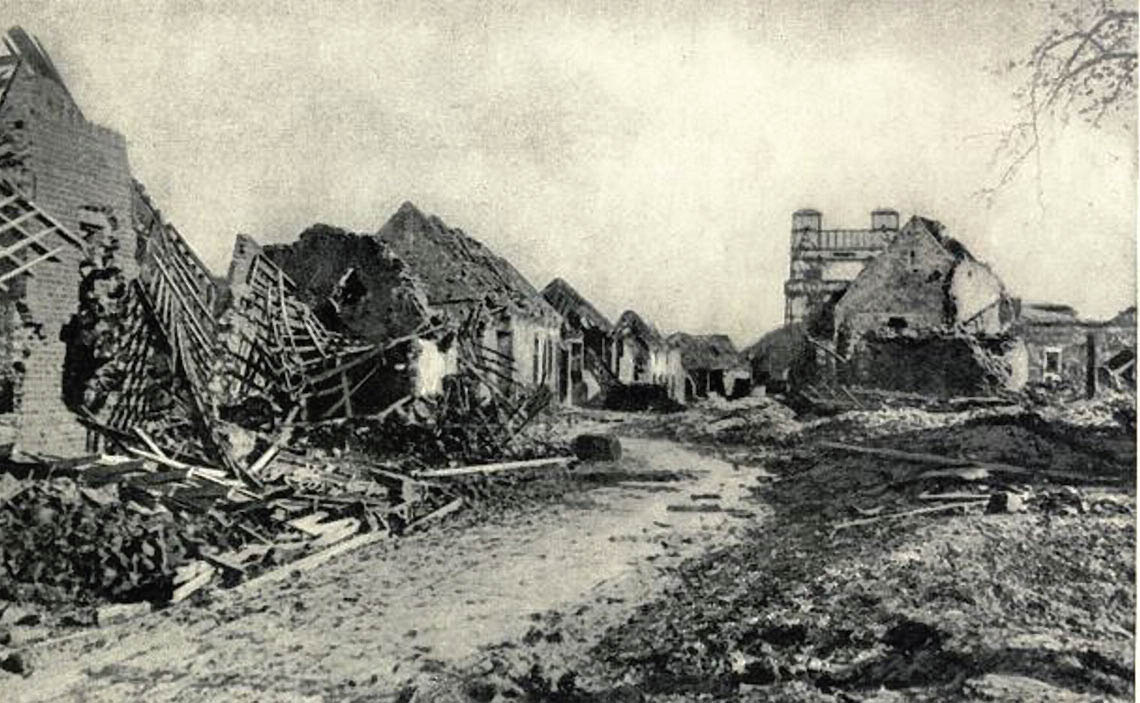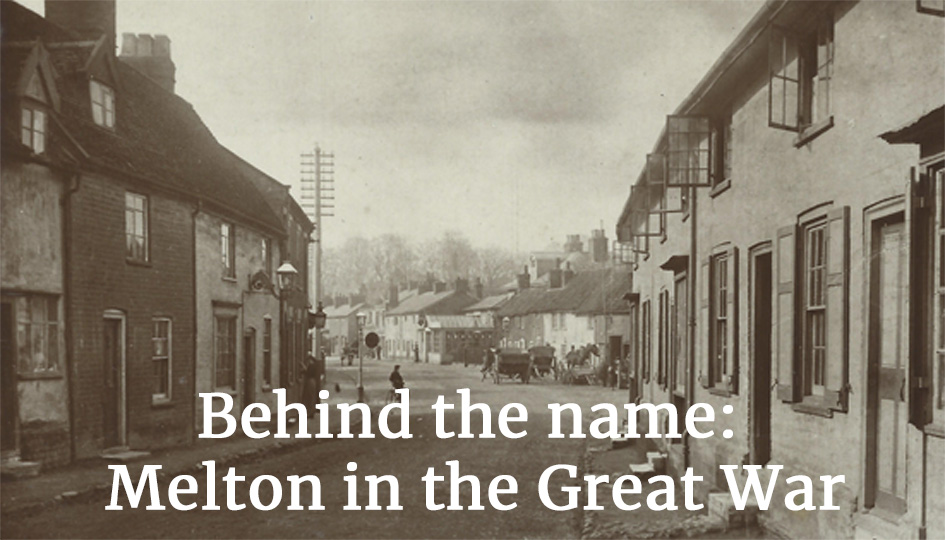Ernest was born in Islington, London, on 20th July 1898. In 1911, he was at school in Melton. Ernest enlisted in the Suffolk Regiment shortly after war was declared and by 31st August 1915, at barely seventeen years old, Ernest was in France with the 9th Battalion, Suffolk Regiment.
On arrival in France, the battalion spent the night in a transit camp before travelling on to Alette. For the month of September, they remained in Alette undergoing training, after which, the battalion was ordered to move to the mining area around the town of Bethune. It was here Ernest first experienced the realities of the war to come, in a front line trench known as “Quality Street”, located nearby to Bethuné Fosse Nº 9 (a fosse being a pit or coal mine).
Loos landmark 'Tower Bridge' still standing admist the wrecked village
On 26th September, the Battle of Loos began. The battalion was ordered to take part in an advance to capture enemy-held territory. During the fighting, Serjeant Arthur Saunders’ actions resulted in him receiving the Victoria Cross. It was the first awarded to a member of the Suffolk Regiment. In 1916, Ernest and the battalion were fighting in the Battle of the Somme at Flers-Courcelette, Morval and Le Transloy. 1917 saw them at Hill 70 in the Battle of Arras and later, at Cambrai. In January 1918, while at Lecquière, the 9th Suffolks received news they were to be disbanded and on 5th February 1918, Ernest was transferred to the 11th Battalion, Suffolk Regiment.
On 21st March 1918, the German Spring Offensive began and the 11th Suffolks were involved in the Battle of the Lys between 9th and 19th April. The battalion suffered severely; two hundred and eighty men were killed, wounded or reported missing. In May, the battalion, along with its parent 34th Division, was withdrawn to Poperinghe in Belgium to regroup. At that time, the 34th Division had been severely reduced in strength, with the majority of its battalions redeployed or disbanded. Disbandment, however, was not to be the fate of the 11th Suffolks, who joined the 183rd Brigade of the 61st Division at the beginning of June 1918. From that point, until the end of the war, Ernest and the 11th Suffolks took part in two battles during the One Hundred Days Offensive: the Battle of the Selle on 24th and 25th October and the Battle of Valenciennes on the 1st and 2nd November. The following day, they left the trenches for the last time and returned to their billets. Eight days later the Armistice was called.
Ernest was discharged on 19th February 1919 and returned home to Melton. For his war service, he received the 1914-15 Star and the British War and Victory Medal.
In 1926, Ernest married Doris Lilian Beverley in the Woodbridge area and they had two children. In 1939, he was living with his wife and family in Wembley and working for a coach-building firm. Ernest died in 1986 while living in Kent.
